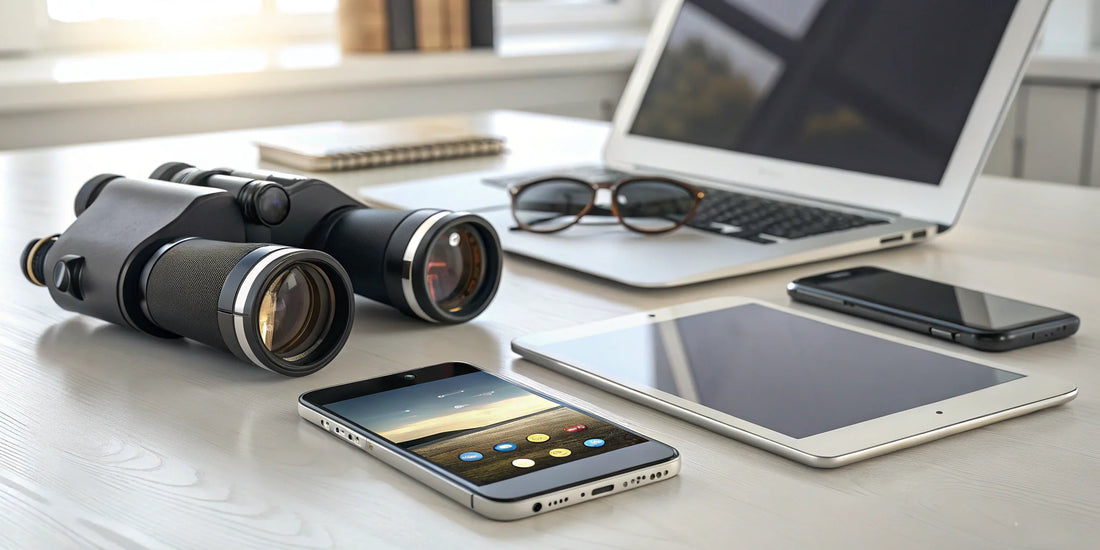
Are Your Smart Devices Spying On You? How to Take Back Control
Share
Do you ever get the feeling that your smart devices know more about you than they should? You're not alone. In a world where privacy often feels like a luxury, understanding how to protect yourself is crucial. Let’s explore the rising concerns around privacy and how you can regain control with the right tools.
Why Privacy Concerns Are Growing in the USA, Canada & Australia
As technology advances, our lives become more intertwined with digital devices. While they bring convenience, they also raise significant privacy concerns, especially in countries like the USA, Canada, and Australia. These regions have witnessed a surge in data breaches and unauthorized data collection, making privacy a primary concern for professionals, frequent travelers, parents, and couples.
- Digital Footprint: Every online action leaves a digital mark. Companies often track this data, leading to targeted ads and intrusive marketing.
- Legislation: Although legislation like GDPR in the EU aims to protect data, similar comprehensive protections are not uniformly applicable elsewhere, leaving gaps.
- Rising Cybercrime: Cybercrime targeted at personal data is on the rise, and many citizens feel ill-equipped to protect themselves.
Understanding these factors is the first step in safeguarding your privacy in an increasingly interconnected world.
How Hidden Cameras & Smart Devices Compromise Privacy
Hidden cameras and smart devices often do more than advertised, listening intently or capturing data without explicit consent. Let's delve into how these devices can be privacy culprits:
- Smart Speakers: Devices like smart speakers are always listening for "wake words." This continuous monitoring can lead to unauthorized data capture, especially if improperly secured.
- Hidden Cameras: Found in vacation rentals and hotels, these can capture video or audio without your knowledge, compromising your privacy during your travels.
- Connected Appliances: Even your fridge could be capturing more than it should, transmitting usage patterns back to manufacturers for analysis.
Each of these devices possesses the potential to invade your privacy, whether due to poor security settings or malicious intentions.
What Makes Privacy Feel Like a “Luxury” Today
Privacy indeed feels like a luxury in today's world due to several reasons:
- Complex Technology: The complexity of setting up and securing devices often deters users from taking necessary precautions.
- Data Monetization: Companies monetize personal data, making privacy secondary to profitability.
- Awareness Gap: Many users are not fully aware of the extent to which their data is accessible and used.
This landscape makes it essential for individuals to take proactive steps in securing their data.
7 Must-Have Tools to Protect Your Privacy in 2025
Here are seven essential privacy tools every savvy individual should have in their arsenal to ensure their information remains private:
- Privacy VPNs: Use a Virtual Private Network to encrypt your internet traffic, making it difficult for prying eyes to track your online activities.
- Smart Camera Covers: Invest in camera covers to shield your devices from unauthorized access.
- Encrypted Messaging Apps: Use apps like Signal for secure communications free from third-party intrusions.
- Password Managers: Manage your passwords securely with tools that generate and store them in encrypted formats.
- Anti-Spyware: Protect your devices from malicious software that can hijack your privacy.
- Secure Smart Home Systems: Opt for smart home systems that prioritize security and provide user-friendly interfaces to control data sharing.
- Privacy-Focused Browsers: Utilize browsers that block trackers and enhance privacy settings by default.
Shop our privacy collection now & stay safe.
Choosing the Right Gadget for Your Situation
Selecting the right privacy tools requires consideration of your environment. Here's a guide based on different settings:
- Home: Utilize smart home systems with robust privacy settings and use devices like smart speakers with hardware mute buttons.
- Hotel: Equip yourself with portable camera detectors and maintain VPN connectivity on all devices while traveling.
- Workplace: Adapt enterprise-grade encrypted communication tools and regularly update security protocols on work devices.
Tailoring your privacy tools to your specific needs ensures optimal protection.
FAQ: Are Privacy Tools Legal in My Country?
Concerns about legality often arise, especially when dealing with privacy tools. Here's a quick overview:
- USA: Most privacy tools, including VPNs and encrypted communications, are entirely legal, as long as they're used for lawful activities.
- Canada: Similar to the USA, privacy tools are legal, with strong encouragement for protecting personal data.
- Australia: While privacy tools are legal, users should ensure they're used in compliance with local laws regarding security and data use.
Always ensure that your privacy practices comply with local regulations to avoid any unintended legal issues.
Conclusion
In an age where privacy is continually under threat, adopting proactive measures to protect your digital life is essential. Equip yourself with the right privacy tools and take control of your personal data. Stay mindful and stay safe.
Shop our privacy collection now & stay safe with Privacy Tools IO.
